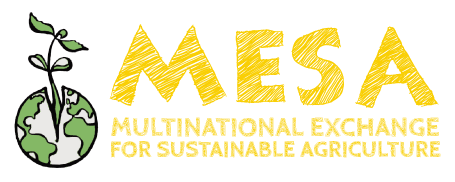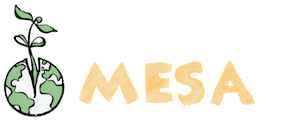<- Return to Listings | Copy | |
Host Training Plan
Dripping Springs Garden
| Name | Mark W Cain | [email protected] | |
| Steward(s) Selected | Dixon Ndereba Ntwiga – | ||
| Training Start Date | 04/01/2023 | Training End Date | 10/31/2023 |
| Steward Training Hours per Week | 40 | ||
| Compensation (Stipend or Wage) | Regular SAGE Stipend – $700/mo. (MESA sends to Steward via our monthly Host fee) | If Yes, how much/how often? | [1156] |
| Non-Monetary Compensation and Estimated Value | Est. $10000/mo (Housing, medical insurance, food, misc.) |
| Name of your Workers’ Compensation Carrier | None |
| Will your Workers’ Compensation policy cover the Steward? | No, but equivalent coverage |
| Number of Employees at training location | 6 |
| Number of Interns/Trainees/Apprentices at training location | 4 |
| Annual Revenue | $0 to $3 Million |
[Phase 1]
| Phase Name | Orientation and Introduction to organic greenhouse management, field preparation and irrigation, seedling propagation and fertilization | ||
| Start Date of Phase | 04/01/2023 | End Date of Phase | 05/31/2023 |
| Primary Supervisor during this phase | Mark W Cain | Supervisor Title | Owner |
| [email protected] | Phone Number | 870-545-3658 | |
| 1. Describe the Trainee/Steward’s role for this phase |
|
Trainee is under the immediate supervision of the owners who work directly with them in the field most of the time. Performance evaluations are ongoing, and trainees will meet with the owners every other week to discuss performance, ask questions, and establish learning goals. |
| 2. Specific goals and objectives for this phase |
|
Convery the skills for organic propagation of plant materials; set up of drip irrigation systems; maintenance of season extension structures; elements of biointensive production; harvest and marketing of spring vegetables and cut flower species. |
| 3. Primary Supervisor’s qualifications |
|
Mark Cain, co-owner and field manager |
| 4. What plans are in place for the Trainee/Steward to participate in cultural activities while in the United States? |
|
Every week the trainee will have the opportunity to assist with sales at the Farmers Market which is a cultural center, and to meet many other participating farmers and customers. Occasionally it will be possible to attend church services nearby, get a card to the local library, attend concerts or festivities. |
| 5. Specific knowledge, skills, or techniques to be learned during this phase? |
|
1. Organic greenhouse and hoophouse management: temperature/irrigation requirements and maintenance; organic soil mixes; seed treatments; greenhouse pest control; indoor cut flower and vegetable production. 2. Bio-intensive production: bed layout and irrigation; crop planning and rotation. 3. Flower bouquet creation for Farmers Market |
| 6. How specifically will this knowledge, skills, or techniques be taught? Include methodology of training and chronology/syllabus. |
|
Specifically the trainees are rotated between flower and vegetable crews every two weeks so that they can be exposed to all aspects of the work. Trainees are under the direct supervision of one of the farm owners or an assistant field manager familiar with procedures, and any questions are immediately addressed. Weekly classes in fertility management, field production, etc., also provide a time to ask questions, provide feedback, etc. Trainees are required to complete a daily record of activities as well as track plantings on a farm map. Selections from a library of practical-skill videos is used during classes as a platform for discussion. |
| 7. How will the Trainee/Steward’s acquisition of new skills and competencies be measured? |
|
Competencies are measured via a skills assessment form provided by the University of Arkansas, used for our American trainees. |
| 8. Additional Phase Remarks (optional) |
|
This is an introductory phase in which the trainee is always under direct supervision. |
[Phase 2]
| Phase Name | Summer field management, harvesting, and marketing | ||
| Start Date of Phase | 05/31/2023 | End Date of Phase | 08/31/2023 |
| Primary Supervisor during this phase | Mark W Cain | Supervisor Title | Owner |
| [email protected] | Phone Number | 870-545-3658 | |
| 1. Describe the Trainee/Steward’s role for this phase |
|
Trainee is under the immediate supervision of the owners who work directly with them in the field most of the time. Performance evaluations are ongoing, and trainees will meet with the owners every other week to discuss performance, ask questions, and establish learning goals. |
| 2. Specific goals and objectives for this phase |
|
To become familiar will all aspects of field planting, handling of transplants, harvest and post harvest handling of vegetables and cut flowers, market set up, sales to restaurants and natural food stores, CSA harvest and packing. |
| 3. Primary Supervisor’s qualifications |
|
Mark Cain, co-owner and field manager |
| 4. What plans are in place for the Trainee/Steward to participate in cultural activities while in the United States? |
|
Every week the trainee will have the opportunity to assist with sales at the Farmers Market which is a cultural center, and to meet many other participating farmers and customers. Occasionally it will be possible to attend church services nearby, get a card to the local library, attend concerts or festivities. |
| 5. Specific knowledge, skills, or techniques to be learned during this phase? |
|
Effective record-keeping, field fertility and irrigation, harvest and post harvest handling for vegetables and cut flowers, marketing to natural food stores and restaurants as well as farmers market |
| 6. How specifically will this knowledge, skills, or techniques be taught? Include methodology of training and chronology/syllabus. |
|
Every day trainee will be under the direct supervision of the owners or field manager in task learned and performed. Weekly classes in selected subjects. Field trips to neighboring farm to see local agricultural techniques. As trainee becomes more competent, more independence is earned, but the owner/trainers are always on site and in the field nearby in case there are questions or discussion. |
| 7. How will the Trainee/Steward’s acquisition of new skills and competencies be measured? |
|
Skills assessment form bimonthly using methodology of University of Arkansas CAFF apprentice program. Monthly on-farm evaluations of performance. |
| 8. Additional Phase Remarks (optional) |
|
During this phase the trainee is given more independence as skill set grows and competency increases. |
[Phase 3]
| Phase Name | Phase 3 | ||
| Start Date of Phase | 08/31/2023 | End Date of Phase | 10/31/2023 |
| Primary Supervisor during this phase | Mark W Cain | Supervisor Title | Owner |
| [email protected] | Phone Number | 870-545-3658 | |
| 1. Describe the Trainee/Steward’s role for this phase |
|
Continued daily practical work as the season progresses. More independence in tasks; more responsibilities for work areas as competency increases. |
| 2. Specific goals and objectives for this phase |
|
Learn the timing of propagation for the plants that are for fall harvests or overwinter in the greenhouses and hoophouses; management of seasonal high tunnels for cold-hardy annuals; management of post-frost residues and cover cropping/green manure procedures. |
| 3. Primary Supervisor’s qualifications |
|
Mark Cain, co-owner and field manager |
| 4. What plans are in place for the Trainee/Steward to participate in cultural activities while in the United States? |
|
Weekly trips to Farmers Market; monthly or bi-monthly field trips to area farms; concerts or church attendance; other social gathering as possible or desired. |
| 5. Specific knowledge, skills, or techniques to be learned during this phase? |
|
sOctober Production of hardy outdoor vegetables for Market and CSA Production of fall vegetables and cut flowers under season-extension high tunnels and in Learn the timing of propagation for the plants that are for fall harvests or overwinter in the greenhouses and hoophouses; learn to manage seasonal high tunnels for cold-hardy annuals; learn to manage of post-frost residues and cover crop/green manure procedure. |
| 6. How specifically will this knowledge, skills, or techniques be taught? Include methodology of training and chronology/syllabus. |
|
Daily on-site practice instruction practice; weekly classes, Q and A in field and in classes. |
| 7. How will the Trainee/Steward’s acquisition of new skills and competencies be measured? |
|
Bi-monthly skills assessment using methodology of U of A CAFF program apprenticeship program. Monthly on-farm evaluations. |
| 8. Additional Phase Remarks (optional) |
|
During this phase there is an effort to help the trainee integrate what has been learned and discuss how the techniques could applied in the their home countries by discussing what advantages or obstacles they may face in the practice or teaching of organic and agroecological methods in their home country, |
[Phase 4]
| Phase Name | n/a | ||
| Start Date of Phase | 10/31/2023 | End Date of Phase | |
| Primary Supervisor during this phase | Supervisor Title | ||
| Phone Number | |||
| 1. Describe the Trainee/Steward’s role for this phase |
| 2. Specific goals and objectives for this phase |
| 3. Primary Supervisor’s qualifications |
| 4. What plans are in place for the Trainee/Steward to participate in cultural activities while in the United States? |
| 5. Specific knowledge, skills, or techniques to be learned during this phase? |
| 6. How specifically will this knowledge, skills, or techniques be taught? Include methodology of training and chronology/syllabus. |
| 7. How will the Trainee/Steward’s acquisition of new skills and competencies be measured? |
| 8. Additional Phase Remarks (optional) |
[Phase 5]
| Phase Name | n/a | ||
| Start Date of Phase | End Date of Phase | ||
| Primary Supervisor during this phase | Supervisor Title | ||
| Phone Number | |||
| 1. Describe the Trainee/Steward’s role for this phase |
| 2. Specific goals and objectives for this phase |
| 3. Primary Supervisor’s name and qualifications |
| 4. What plans are in place for the Trainee/Steward to participate in cultural activities while in the United States? |
| 5. Specific knowledge, skills, or techniques to be learned during this phase? |
| 6. How specifically will this knowledge, skills, or techniques be taught? Include methodology of training and chronology/syllabus. |
| 7. How will the Trainee/Steward’s acquisition of new skills and competencies be measured? |
| 8. Additional Phase Remarks (optional) |

